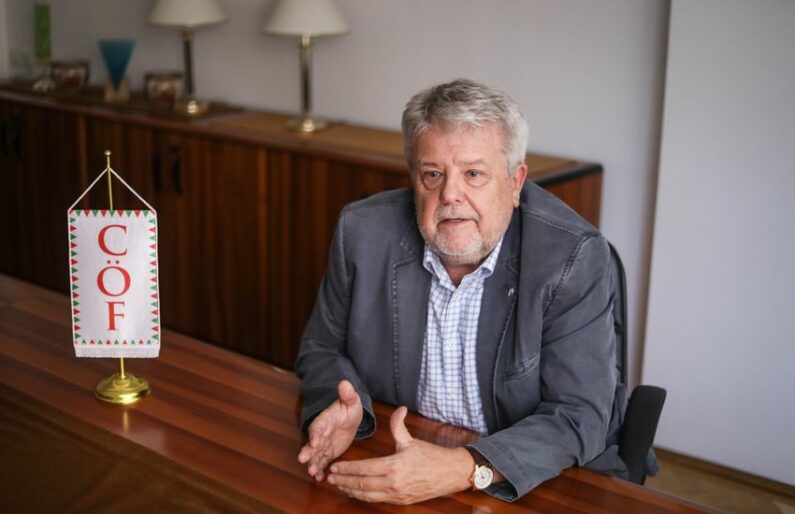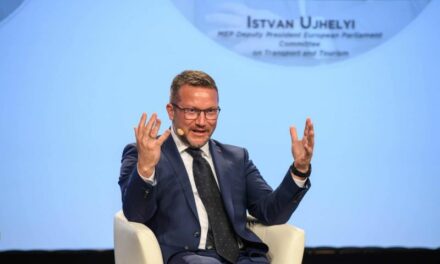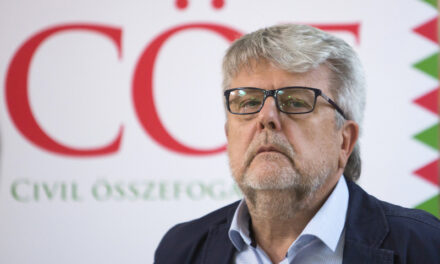The operational forms of Hungarian trade unions have preserved the traditions of the socialist past. With a few exceptions, they follow a form of class warfare in their advocacy work. Their attachment to parties is identified with the full acceptance of ultra-liberal ideology. May we ask where is last year's snow? The answer: nowhere.
Being well-paid, the all-accepting trade union leaders who graduated from the party-state triangle did not care about the representation of the workers, they baked their own steaks, and collected the fees for membership stamps with their employees.
Excessive centralization, with the help of the leaders of trade unions embedded in socialism, cemented the decades-long rule of the one-party system.
It is time to transform the old structure that served the party-state and to dissuade the SZOT, which unfortunately did not hold its squanders accountable, from representing employee interests. The squandering of billions taken from employees continues as a reason that still exists today.
CÖF-CÖKA has extended its partnership towards Christian trade unions that follow national interests, so we can welcome the Italian UGL and the Spanish SOLIDARIDAD, organizations representing more than two million workers, among our supporters. We are also proud to have a close relationship with the National Association of Workers' Councils for more than 12 years.
It can be considered our common position that the participation of employees in the management of companies should be increased. In addition to the weighting of interests, we must emphasize the expectation of participation in decision-making processes. It is necessary to build a cultural environment that supports constant dialogue between companies, employees and the area. The ideal of subsidiarity can advance the realization of jointly agreed goals. The logic of co-responsibility, consensus and distribution should be preferred.
The caring state, the private and public owners, should consider the company's institutional management, employees and their family members as partners. The community formed in this way is the biggest and wisest force in every situation, able to solve the problems arising from external and internal economic influences.
"Organizations and companies must be created that integrate competitiveness, job preservation, protection, long-term sustainability, and strong ties to local communities." - Francesco Paolo Capone, Secretary General of UGL.
The creation of a new management structure is also a cultural change. It requires time, commitment and support professionals accompanying the process on the part of the stakeholders. The caring state is where the owners, management and employees share the responsibility together with their families.
It plays a prominent role in the formation of relationships of interest that the remuneration of employees is linked to effectiveness:
follow the current rate of inflation
the jointly achieved additional productivity should be shown in a profit ticket
owners should not forget their employees' families in the form of social benefits, such as cultural, health, sports and recreation services
Employees should form quality circles and development groups, contributing to the effectiveness of the collective. Increasing productivity, reducing costs, and eliminating waste should be a daily service.
In addition to economic interests, local solidarity is indispensable. Party interests and wrong ideologies cannot be brought into the workplace.
CÖF-CÖKA also takes foreign examples into account and recommends increasing the effectiveness of the caring state apparatus in the protection of employee interests, bringing it into a competitive position, instead of trade union barricade fights.
The COVID epidemic and the Russian-Ukrainian war attack our population primarily through energy and food inflation. We believe that the recommended organizational transformation of interest protection can be launched in the field of food retail and wholesale as a test.
The current concentrated union structure precludes a competitive situation representing the interests of employees. It narrows the democratic rights of workers and does not recognize the primacy of subsidiarity. In our time, the embeddedness of trade unions representing party interests presupposes the bringing into competition of employee interest representation, which ensures workplace peace and common development.
László Csizmadia
the president of CÖF-CÖKA












